Brian Robertson - Interview
by Lisa Torem
published: 20 / 3 / 2011
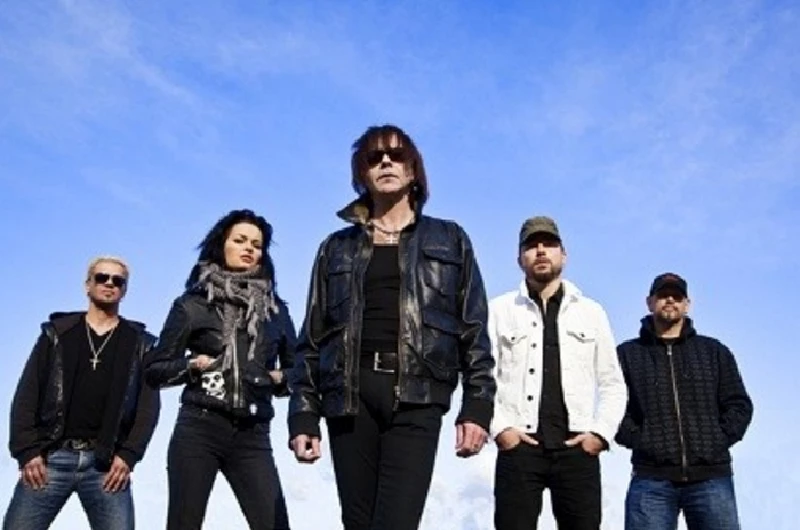
intro
Former Thin Lizzy and Motorhead guitarist Brian Robertson speaks to Lisa Torem about his just released blues-influenced debut solo album, 'Diamonds and Dirt'
Scottish guitarist Brian Robertson has just released a compendium of blues-inflected collaborations called 'Diamonds and Dirt', but it was chance that brought his debut solo album to fruition. “Robbo” had simply lent a random bag of recordings to his musician friend and co-producer, Soren Lindberg, who was driving across the country. It was Lindberg who suggested that Robertson’s material was a buried blues treasure. This debut solo work includes the talents of Ian Haughland of Europe, Nalle Pahlsso of Treat, Leif Sundin of MSG and singer/guitarist Liny Wood, and thirteen songs co-written by Robertson, Phil Lynott, Frankie Miller and Jim White. Robertson, along with American guitarist Scott Gorham, made legendary the crisp tandem guitar licks that pumped up Thin Lizzy’s discographies and live performances from 1974-1978. (That line-up also consisted of singer and bassist Phil Lynott, who died in January 1986 from drug-related medical complications, and drummer Brian Downey.) Robertson contributed to Thin Lizzy's 'Nightlife' (1974), 'Fighting' (1975), 'Jailbreak'(1976), 'Johnny the Fox' (1976), 'Bad Reputation' (1977) and the live recording, 'Live and Dangerous' (1978). Although “Robbo” only had the opportunity to add two tracks to 'Bad Reputation', he contributed many varied instrumental arrangements overall. Alhough it was ‘The Boys are Back in Town’ that launched Thin Lizzy’s international success, the contagious ‘Dancing in the Moonlight’ garnered much acclaim, as did the menacing 'Jailbreak' with its outlaw swagger of lyrics; “Tonight there’s gonna be a jailbreak somewhere in this town…” The Celtic rhythms and pulverizing riff of ‘Emerald’, along with its powerful narrative; “Down from the glen came the marching men/With their shields and their swords to fight the fight,” became much loved and covered. The talented multi-instrumentalist turned killer guitarist, who apppeared on all those tracks, started his career as a teen; he was part of the Average White Band, before replacing Lizzy’s then guitarist, Gary Moore, and was also replaced by Moore, after moving on. Post-Lizzy days were spent performing and recording a pair of albums, 'First Album' and 'Stand Your Ground' in the early 1980s, with Wild Horses, along with Rainbow bassist, Jimmy Bain. After replacing “Fast" Eddie Clarke and joining metal giants, Lemmy and Phil "Philthy Animal" Taylor, in Motorhead, Robertson contributed outstanding instrumentals to 1983's 'Another Perfect Day'. It is evident during a phone conversation with Pennyblackmusic that Robertson has lost none of his early humour or spark, although he was certainly frank regarding his misgivings and memories about the past. He spoke about his exciting new ventures and unparalleled mastery of his beloved instrument. PB: Brian, your new solo album,'Diamonds and Dirt', came about as kind of a coincidence. Can you elaborate on what happened? BR: It was kind of a weird one. Soren Lindberg came over to England to pick up a little more recording equipment and stuff, and when we went over to my lock up we found a bag of tapes. And, I didn’t know what the hell was in there; none of them were really marked. He was going to drive the gear back to Stockholm, which is a hell of a drive (Laughs), about three or four countries, and, I said, "You take these tapes and listen on the way back to break up the monotony", and he phoned me up, half-way back, I think it was from Denmark, or somewhere, and he said, "Listen, there’s some great stuff on here. We should just do an album." I said, "Oh, all right." I didn’t know what was on the tapes, obviously. He actually played a couple of the tracks over the phone to me. I recognized them. So, I flew over here and we sort of went through a few of the tapes. And, so, we decided on what songs we could use. because, most of them were actually written on keyboards. I had to transpose them to guitar, you know? So, it’s basically Soren’s fault. It’s not mine (Laughs). It’s more or less down to him. he instigated it all. PB: How do you see 'Diamonds and Dirt' in light of your previous work? BR: To be honest, I’m pretty much over the moon with it. The reason I’ve thought to do it in the past is simply because we’ve been working with too many bands and playing for them, and I spent ten years playing with Frankie Miller, on and off; we got Motorhead, we got all that sort of thing happening and doing sessions for other people and also we’ve got record companies, as well, and we’ve been looking for other bands and what not, so I didn’t really think about doing a solo album too much. But, once I got into it and we started rehearsing, I thought that it was quite cool (Laughs) PB: Will you pull together this same group of artists for another project? BR: Well, if I’m working with other solo artists, obviously, I’ll pull the rhythm section forward, if it suits what they want. It’s a hell of a rhythm section. They do a lot of work together on different sessions, plus they play with their own bands, as well. Ian’s (Haughland) from Europe and Nalle Pahlsson is from the band, Treat, so they’re working all the time. They do a lot of session work together. We’re also old friends, so it’s not like we didn’t know each other. We’ve known each other for years. And, I’ve always known that Ian could provide a lot more than he does with Europe; because it’s a different type of music really. So, I basically just said to the two boys in the rhythm section - We went through the rehearsals - and I said, "You know the basic arrangements. Now, you just go and play what the bloody hell you want" and they did, and it’s pretty stunning, actually. I’m very lucky to have them. I’m very lucky to have all of them in the band. They’re all friends. The only sort of new friend is Liny Wood and the reason she got involved is that we were recording in Polar Studios, which is Abba’s old place in Stockholm, and she was actually next door in the other studio recording her album and this girl walked in and said, "I’ve been listening to your stuff from outside the door. Is it alright if I sit down?" And, I said, "Yeah, sure it is." And, she loved it, and I said, "Actually I have to confess I’ve been listening to your stuff outside the door as well." And, so I asked her if she’d like to do the second lead vocal. And, she said yes, and I said, "Great, and I’ll play guitar on your album." And, so I went next door and played guitar on hers and she did vocals on mine and. of course, we got Leif Sundin on lead vocals, who I’ve known for years and years. I have actually toured with him. We had a band together touring Scandinavia, so it’s a family thing, really. I wouldn’t play any gig without him, I’ve just done one live gig with him, which was in Dublin, a couple of months back, for the 25th anniversary of Phil's death and that was kind of nerve-wracking because it was the first time the band had ever played live together before and we had about one day’s rehearsal but once we started playing the boys and girls were just phenomenal (Laughs). I really enjoyed it. It was great. PB: How did you choose the original tracks, ‘Devil in My Soul’ and ‘Texas Wind’? BR: Well, they’re actually from a later session with a band I was with called the Hellfire Club, which was the drummer from the Colt and the bass player from Killing Joke, Paul Raven. We recorded them in a proper studio, but the band was a little bit disjointed. It was kind of a weird one. It sort of fizzled out, but I still had the tapes and when I listened back I thought I could arrange things and bring them up to date, and that’s precisely what I did. I’ve got a friend of mine, Tony Platt, who was actually the engineer on the very first Lizzy album I did, and he’s also the producer on a Motorhead album. So, I got him to come in and do the demos for me. It’s all connected, one way or the other, you know? So, those songs were kind of later. ‘Diamonds and Dirt’ – it was quite a while back when I wrote that one. But, I’ve obviously updated that and rewritten the lyrics to basically say what I’m going through at the moment, so it’s kind of pretty coloured. PB: And what are you going through at the moment? BR: The same old shit that guys and girls go through. I mean, honestly, what do you think “diamonds and dirt” means? It means that girls give you the diamonds in their eyes and in their hearts; the dirt will turn on you. PB: Sad. BR: Yeah, that’s how I feel, but then again I can see that men aren’t that much better, to be honest (Laughs). Such is love. PB: I wanted to know about your memories of doing twin guitar work with Scott (Gorham/Thin Lizzy). Are you still engaging in that approach? BR: No. PB: So that was just a stage you went through? BR: No, that was Thin Lizzy, you know, and this isn’t. So, it wouldn’t sound right in what I’m doing. It’s more of a blues-based band now, although it’s pretty heavy rock, as well. No, I mean, the twin lead thing I’ll leave to Lizzy. I’m the only lead player in this band so that’s the way it goes. PB: What about the talk box and the wah-wah? BR: The talk box, I got rid of that a long time ago. It was pulling my fillings out; it was loosening my teeth. I only used that on one song in Lizzy. It’s too painful to use, anymore. It’s basically an amplifier with a high-end driver in it. It’s on the floor and the tube is built on top of that. It comes up to the microphone and you mouth words. Jeff Beck is the master of that. In fact, I saw him in Stockholm, not so long ago and we hadn’t met in 25 years, so we had a bit of an evening together. PB: Did you play? BR: No, actually, I went backstage and we had a big hug and and some champagne, and he had Narada’s Michael Walden on drum, and one of my own drummers came in, and we all ended up in the dressing room. Jeff got his guitar out and we started singing together all these old Motown songs. (Laughs). It was a strange evening, but really cool, you know? PB: Some of the Thin Lizzy songs were remastered. You weren’t initially satisfied with the production. Were you happier the second time around? BR: I haven’t really listened to it. I’ve got the remasters. There’s some sort of dispute over whether some of them were remastered, even though it says, on there, on the cover. I don’t know the ins and out about that, but if that’s the truth it’s a bit naughty. But I had nothing to do with any of that. PB: How about the song, ‘Emerald?’ It was a fusion of Celtic and rock. Do you still enjoy performing that one? BR: It’s all retrospective to listen to all of that stuff, but I’m too busy listening to new stuff and other bands. I’ve listened to Lizzy (Laughs) on and off for thirty five years, so it’s not something I usually put on the stereo, unless I’m completely drunk. PB: As far as Motorhead, your work on ‘Another Perfect Day’ was amazing, but was the band a good match for you? BR: I enjoyed my short period with Motorhead and in doing the album it got me back into writing quite a lot, because I’m sure you can tell there’s a lot of my writing in that album, and I was really pleased with the way it turned out. And, I’m pretty proud of that album. It’s a strange departure for Motorhead, but at the time, they seemed to be up for it, because when they asked me to join permanently, after I’d done the American tour with them, I was just standing in as a friend to help them out in that tour, and then they asked me to join and I said, "If I’m going to be part of the band then we really need to change the direction here, because I can’t play that old Motorhead stuff, it’s just too in your face." I wanted to do something a little bit more melodic with it and they told me to go ahead, and so I started writing and that’s what came out. PB: It sounded like there was some twin guitar work on the recordings. BR: I had a lot of effects, because what I recorded on the album I obviously overdubbed quite a lot. So, I had pitch transposers and all sorts of stuff. I was more or less tied to the pedal boards (Laughs); it was like doing a little dance. It’s hard having all these different guitar parts come out when it’s only the three of you. But, it was fun. PB: You worked with Eric Burdon on his 1978 album, 'Darkness Darkness' Was that only a one-time collaboration? BR: Yeah, it was Bobby Tench who called up, because he was playing guitar for Eric. He called me up and said, "Can you come down and do some lead on this, because (laughs) I can’t really get my head around it?" So, I just walked in and knocked out a few guitar solos. But, it was a one-off, yes. PB: What kind of audience are you expecting for 'Diamonds and Dirt?' I ask you that because I’m wondering if your diversity of styles with Thin Lizzy, Motorhead and Wild Horses has attracted a wide spectrum of fans. So, with this release being a blues-based, solo album, does your fan base change? Plus, it appears that your audience is anxiously awaiting this project. It has taken several years for the project to take shape. BR: This album started off as a personal journey for me and Soren and we didn’t really think that there was going to be so much interest in it. We didn’t use our record company and we didn’t use any record company. We did it privately ourselves, so it was for us. So we weren’t thinking about any demographic and where we wanted it to sell. Because, to be honest, I didn’t think it was going to sell anything, anyway. But I wanted to get it out for my own benefit and for Soren’s benefit. So we weren’t thinking about fans really; I guess I’m going to have to start thinking about that now. The business is so weird these days. Rock probably isn’t as popular, I mean it will never go away. Let’s face it, but you’ve got Lady GaGa out there and they’ve got all those bloody vocals where they use that tune up thing. I can not stand that. If you can’t sing, don’t. Don’t get the bleeping engineer to do that They all sound the same now. And, I know that I’ve got a great singer, two great singers and some great musicians, and I would never use anything like that. I’ve got it in the computer, but do I need it? No. PB: How did you learn to play the guitar, Brian? You studied piano first for about eight years. Why the switch? BR: I studied classical piano and cello. I actually started piano with my brother and we had a lesson every week and he wasn’t too good at it (Laughs). So, he decided to give up and I carried on. Then he picked up the guitar and when I saw him with the guitar, I said, "Give us a bash on that" and I found it really easy. He then got pissed off at me because I was playing better guitar then he was ,and so he went to bass and he was actually in my first band, the bass player in the band, and he’s now professor of drama in Edinburgh. That’s his niche, so he found his niche, acting. It’s like every other instrument, I play. I tend to look at any instrument, if we’re sitting around in a circle - "Oh, I’ll have a bash on that." Having learned the basics, I guess if you can learn the basics, on piano or violin, even, if you’re natural on it, it makes learning other instruments and teaching yourself the instruments, so much easier. When I decided to give up the piano, which, of course, my mother was completely against, I was looking through all the old blues and stuff and I decided I’d listen to that and copy some of the licks. Peter Green from Fleetwood Mac is my number one, really, and B.B. King and stuff like that. PB: Some of the guitarists coming up seem so obsessed with speed. You have talked in previous interviews about “space.” What have you learned about phrasing and telling a story through your guitar? BR: Well, I think that’s always been in me, because I was brought up with the blues. The blues is about space. It’s not always what you play, it’s what you leave out. And, when you come in with the next note, to come back in, if you leave the right space at the right time, going with the vocals and the drums and everything else, you have to listen to everybody…it seems to me that a lot of the heavy rock guitar players; they’re not listening to anybody. They just want to listen to themselves going widdly, widdly, widdly, all over the place… I think it’s kind of misuse of the guitar. There are some guitarists who play like that, but I certainly appreciate like Steve Vai, maybe, or even go back to Frank Zappa (laughs). I thought Zappa was brilliant because he didn’t care if he was hitting bum notes or anything. He was just going for the feel, and I thought he was totally brilliant. But I agree with you that the modern guitar player. It's been kind of drummed into them that they have to be fast and they have to be able to do all this, and that’s not the case. The thing is, you put the speed in there when you need it and if it’s in the right place. I mean, I can play fast, but I don’t. I only do it when I think it’s right for that particular point in the song. So, it’s understanding the arrangement and understanding the music and understanding the musicians around you. PB: Was ‘The Boys are Back in Town’ one of your favourites from the Thin Lizzy days? BR: No. PB: Were you surprised when it hit? BR: No. PB: You weren’t? BR: (Laughs). Well, maybe that’s a bit daft. I guess we were all surprised at the time, because we were so into touring and doing all the rest of it. But, it was pretty obvious from the outset that the hook lines were strong, very strong, so it was obvious that it was going to be a single. Whether we were aware it was going to be such a big one, probably not. I mean, all these weird chords that were on it, (Laughs) when we started rehearsing it… The boys would all ask what the hell chord is this? Augmented ninth... It kind of added to it, because they are really strange chords, for rock and roll, I guess. PB: You all collaborated on the songs, but was there one strong riff-creator in Thin Lizzy? BR: Well, I tended to write riffs, more, because I was lazy. I’d let Scott do all the rhythm and then I’d stick a riff over the top of his, his rhythm. Yeah, I’m pretty riff oriented. PB: Were you satisfied with the amount of songwriting you were able to do with the band or was it pre-ordained that Phil would put his stamp on the repertoire? BR: Well, let’s put it this way. I did a lot of writing with that band, so did the rest of the boys. You only ever see Lynott’s name on everything, and I feel that’s completely wrong. But we were so busy and I was so young I didn’t care. I just wanted to get out and play live. If I had to do it again, there’s no way it would just be Lynott. I mean, he’d bring a song to you, on the acoustic, and strum a few chords and then he’d write the vocal line and the rest of the boys had their input but they didn’t get the recognition, which I think is wrong. I’ve always thought that and I think, probably, that the rest of the boys feel the same. I know Brian Downey does. You’ve only got to look at ‘Don’t Believe a Word.’ There was a big argument with Lynott about it when we were out in the country writing and he brought this song in and it was a slow version of it and I just turned around and said, "Shit. That’s just slow blues, right?" And he stormed out and disappeared for three days. So, after two days, Brian and I said we’re going to have to do something with this song because Phil’s pulling a moody and so I went into the studio, into the rehearsal space and Downey came up with a shuffle. And, then, I wrote the riff. Here’s a perfect example of what I’m saying about the songwriting. See? So, when Phil eventually did come back, that’s how it went down. That’s my riff and it’s Downey’s whole thing with the tempo. That song would never have been done if it hadn’t been for that. That was probably the third biggest selling single that we did, and there was input from everybody on that. PB: What other interests do you have that balance such an all-encompassing passion? BR: Production, obviously. I produced this album. I enjoyed every minute of it. Soren and I actually produce other people together. Soren’s got real good ears. We do a lot of work looking for other bands for the record label. But, at the moment, (laughs) I’m afraid this album’s kind of taking over my life a little bit. As I said before, I never thought it would, but it has done. I’m not complaining..It’s a nice feeling to know that people are actually interested in what you’re doing all these years later. PB: If you could do anything else in the world besides this, what would it be? BR: Probably painting. Art. PB: Are you doing that right now? BR: I’ve been offered an exhibition in Stockholm. But I haven’t had the time to get into it and do much work so..I think it’s something I’ll probably get into at some point. Those are the only things in school I was good at, English, art and music. I guess they kind of go hand in hand. PB: Thank you.
Picture Gallery:-
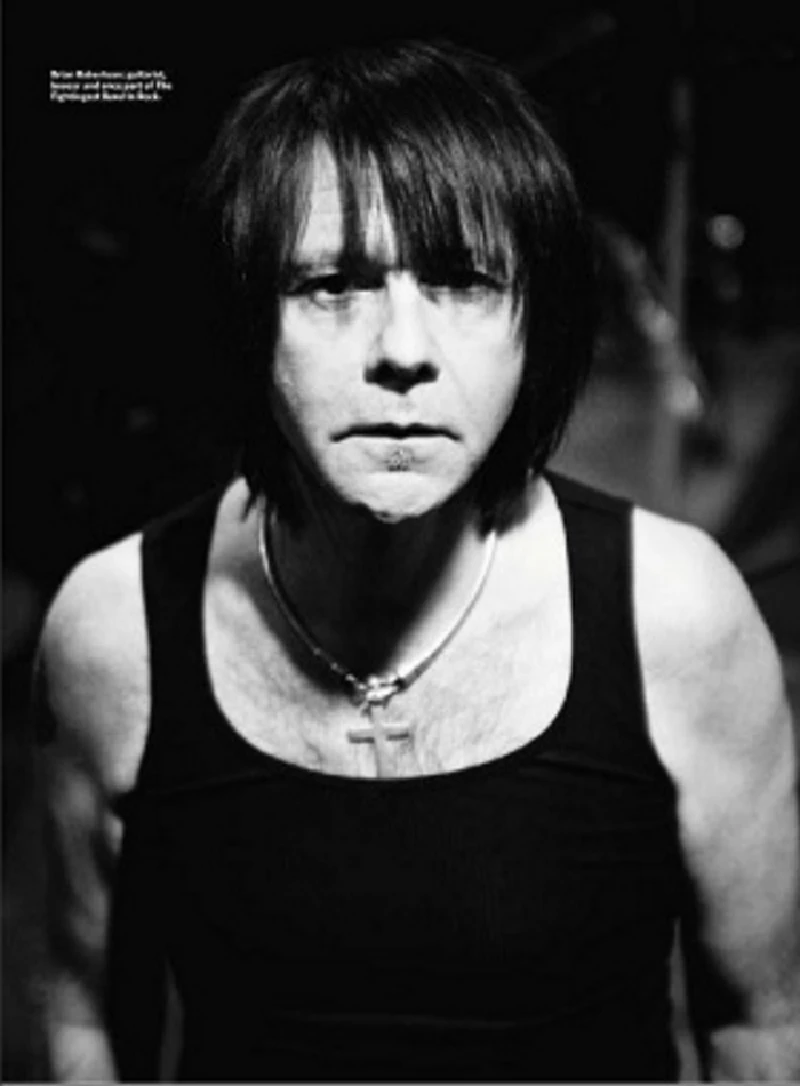
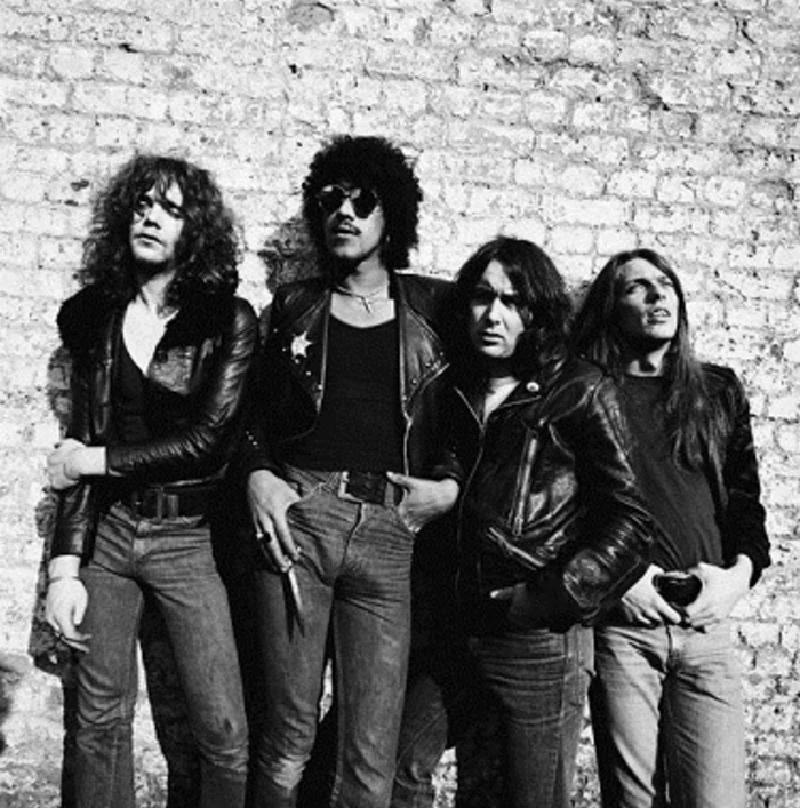
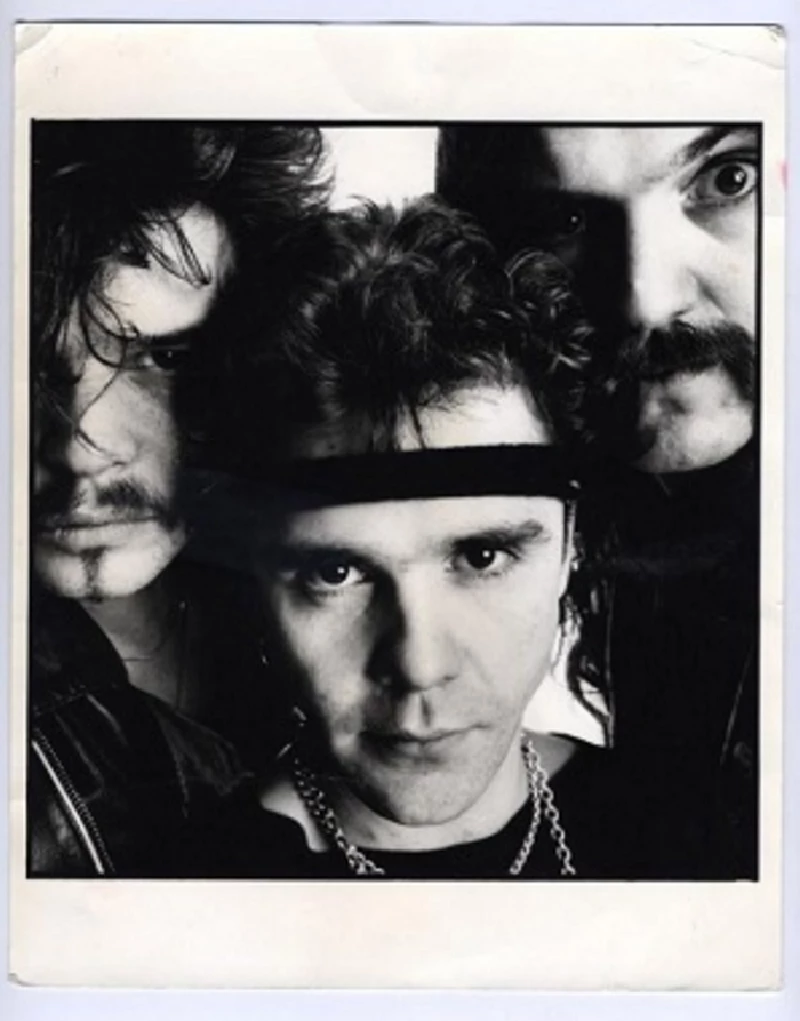
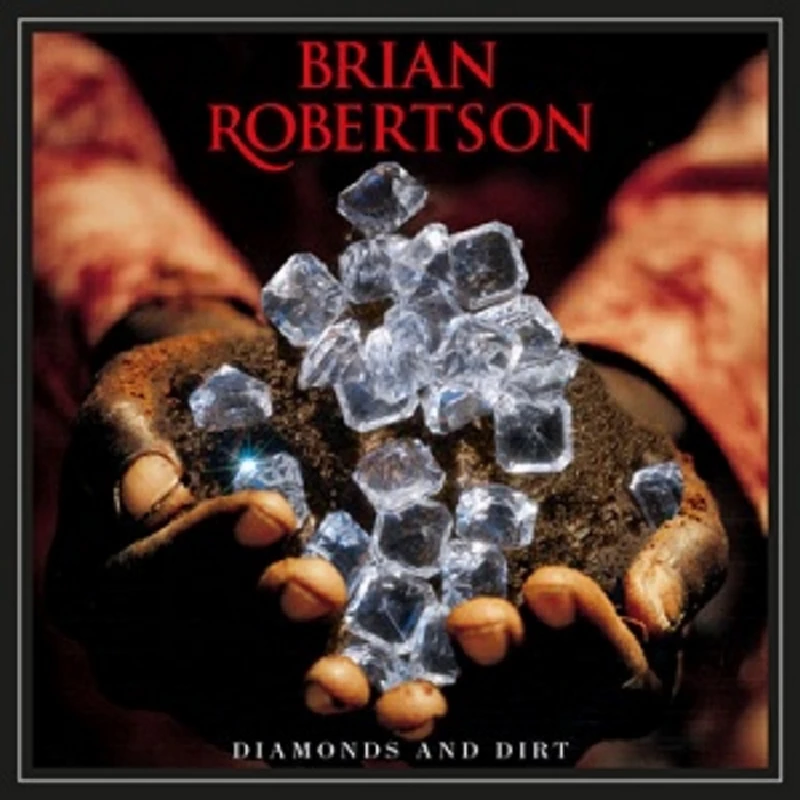
most viewed articles
current edition
Carl Ewens - David Bowie 1964 to 1982 On Track: Every Album, Every SongArmory Show - Interview with Richard Jobson
John McKay - Interview
Colin Blunstone - Thalia Hall, Chicago, 16/7/2025
Bathers - Photoscapes 1
Billie Eilish - O2 Arena, London, 10/7/2025
Loft - Interview
Visor Fest - Valencia, Spain, 26/9/2025...27/9/2025
Sir Tim Rice - Interview
Robert Forster - Interview
previous editions
Manic Street Preachers - (Gig of a Lifetime) Millennium Stadium, Cardiff, December 1999Heavenly - P.U.N.K. Girl EP
Beautiful South - Ten Songs That Made Me Love...
Peter Perrett - In Dreams Begin Responsibilities Interview Part One
Boomtown Rats - Ten Songs That Made Me Love....
Oasis - Oasis, Earl's Court, London, 1995
Coldplay - Wembley Arena. London, 16/8/2022
Prolapse - Interview
Trudie Myerscough-Harris - Interview
Pixies - Ten Songs That Made Me Love...
most viewed reviews
current edition
Davey Woodward - Mumbo in the JumboSick Man of Europe - The Sick Man of Europe
Lucy Spraggan - Other Sides of the Moon
Amy Macdonald - Is This What You've Been Waiting For?
Suzanne Vega - Flying With Angels
Blueboy - 2
Bush - I Beat Loneliness
Phew, Erika Kobayashi,, Dieter Moebius - Radium Girls
Alice Cooper - The Revenge of Alice Cooper
Cynthia Erivo - I Forgive You
Pennyblackmusic Regular Contributors
Adrian Janes
Amanda J. Window
Andrew Twambley
Anthony Dhanendran
Benjamin Howarth
Cila Warncke
Daniel Cressey
Darren Aston
Dastardly
Dave Goodwin
Denzil Watson
Dominic B. Simpson
Eoghan Lyng
Fiona Hutchings
Harry Sherriff
Helen Tipping
Jamie Rowland
John Clarkson
Julie Cruickshank
Kimberly Bright
Lisa Torem
Maarten Schiethart